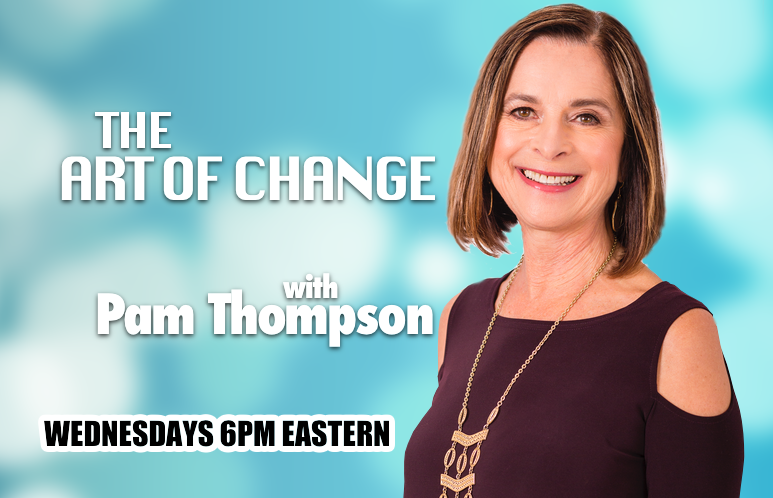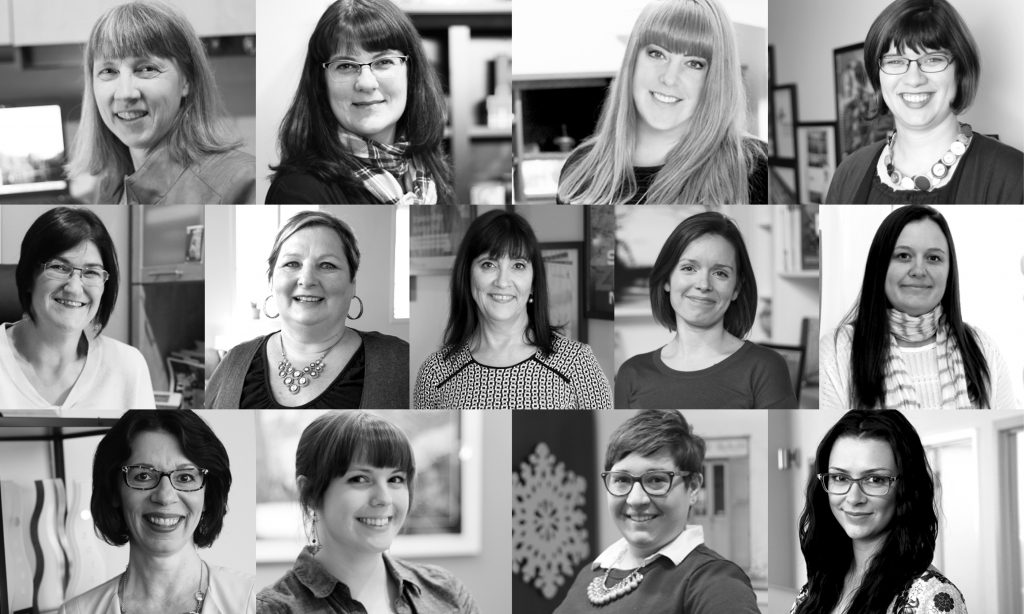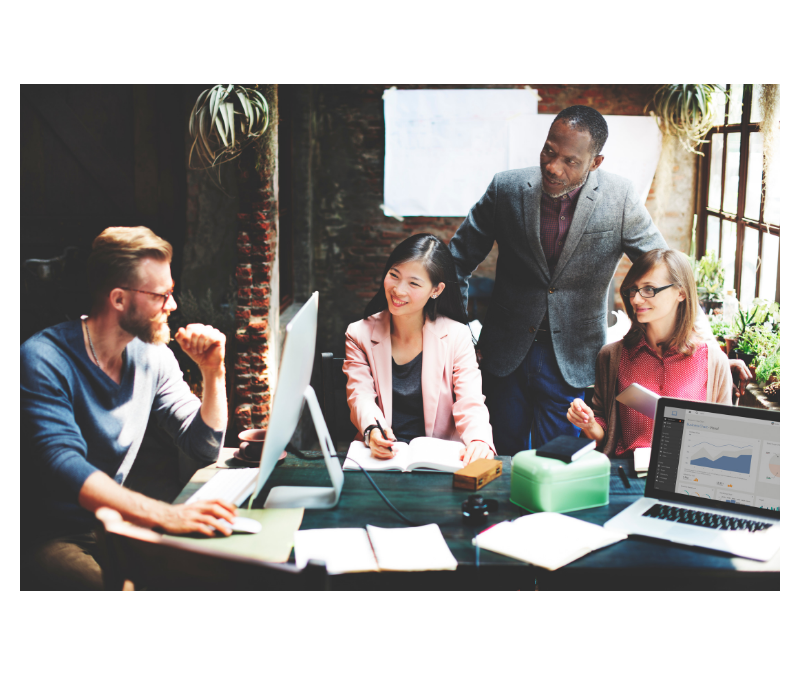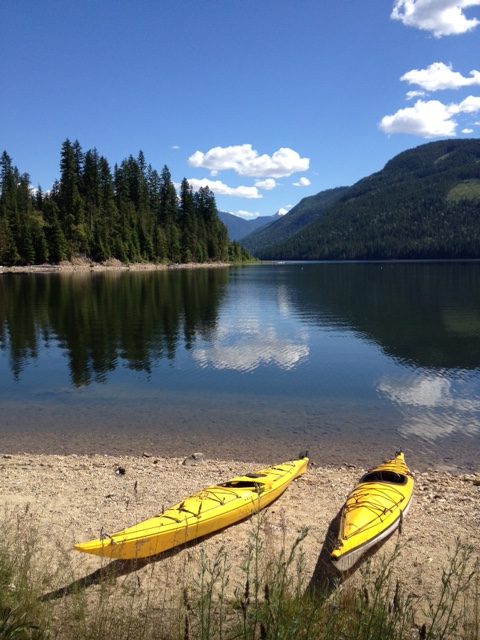
by PT-clc | May 24, 2019 | Change, Changemaker, Embracing Change, Entrepreneurship, Leadership, Women in Business
While vacationing in Mexico a
few months ago, I was lazing by the pool and decided to do some journaling. I
asked myself the question: What do I
really want in my life? Here are some of the answers that came to me:
- I want a new
project
- I want to
have fun
- I enjoy
interviewing
- I want to
make a positive difference in the world
- I would like
someone else to promote me.
Within several weeks of
returning home, I received a phone call from someone from an advertising and
promotional company out of New York specializing in internet radio broadcasting.
They have a global audience that surpasses 50 million listeners. The representative
said that his analytics department had found me on the web and they felt that
there was a niche that I could fill based on my background and experience. We
set up a time for him to give me the details. He said that the niche included
women entrepreneurs, leaders, women in business, high achieving women, and
those aspiring to be leaders and entrepreneurs.
I was then offered the opportunity to host my own weekly internet radio talk show. It was to be my show, my own intellectual property that would stream live on Bold Brave Media’s global network and Tunein Radio to start and would be archived on http://boldbravemedia.com/about-us/.
I was excited about the
possibilities so I signed a contract and embarked on a new adventure as an
internet radio talk show host! It’s been fun the last couple of months learning
about radio and being trained by the Head of Production, an amazing guy with 40
years of experience in the business. My home office now is a studio with a huge
microphone on a moveable arm, and some BIG headphones!
I’m excited to share that
“The Art of Change” radio show launches
June 5, 2019 and will be live weekly
on Wednesdays from 3 to 4 pm Pacific/6 to 7 pm Eastern. The first show will
lay the foundation for future shows and will focus on change, the impacts of
resisting versus embracing it, and will walk you through a practical process
and strategies to embrace change. In future shows, I will be interviewing
inspiring women leaders and changemakers from around the globe and asking them
questions about key changes they’ve made in their lives, key challenges faced and
their lessons learned. You will have the
opportunity to phone in to a 1-800# and ask questions.
The intention for the show is
to create an informative, safe and supportive space for women to tune in to
weekly and phone in (if they feel comfortable doing so) and get their questions
answered about change, leadership, entrepreneurship, creating a social movement
… .
I extend an invitation for you to listen to my first show on June 5th starting at 3 pm Pacific/6 pm Eastern and weekly thereafter at the same time. To access the show you can either download the Tuneinradio app on your phone (visit http://ww1.tuneinradio.com/ ) and listen there going to bbmglobalnetwork and then to the name of the show “The Art of Change”. You may also go directly to http://boldbravemedia.com/ at the scheduled time and click on the show on channel 100. If you’re unable to listen live, you may listen later or download the show from the boldbravemedia site under my name.
I’m excited to have you join me on this new adventure
and welcome your thoughts and suggestions of topics to cover, questions you’d
like answered and potential inspiring women leaders and changemakers to
interview. Please share your comments and suggestions below or email me.
It’s Pamela Thompson signing
off from “The Art of Change” radio show broadcasting live from bbmglobal
network and Tunein radio!

by PT-clc | Mar 29, 2019 | Change, Leadership, Managing Change, Stress Management, Uncategorized
As a changemaker, you are passionate about making a positive difference in the world. You may have chosen a career as a helping professional, work for a non-profit or an international development agency. You may be an academic doing research focusing on improving the health of women and children or you may be CEO of a socially-responsible company. Whatever line of work you’re in, you feel “called” to it.
One of the challenges of being a changemaker is that we experience much joy from giving and sometimes may overextend ourselves by sitting on a number of volunteer boards, or by continually pushing through fatigue to finish that one last thing, rather than taking a break and listening to our bodies. Do you relate?
I understand. I’ve almost burnt out several times in my life. When we continually push ourselves without listening to our bodies, we run the risk of experiencing adrenal fatigue or burnout. Dr. James Wilson in his book Adrenal Fatigue The 21st Century Stress Syndrome notes that:
“adrenal fatigue occurs when the amount
of stress [physical, psychological, emotional, infectious, environmental or a
combination of these] overextends the capacity of the body (mediated by the
adrenal [glands]) to compensate and recover from that stress or the combined
stresses. Once this capacity to cope and recover is exceeded, some form of
adrenal fatigue occurs. “ (p. 11)
While working in Afghanistan with the Ministry of Public Health, supporting them to develop their first strategic plan and building the capacity of internal teams to do planning, I got pneumonia twice within the first 6 months of living there. I recall being at the front of the room facilitating a national multi-stakeholder workshop with my team and feeling an incredible burning in my chest as I wrote on the flipchart. It wasn’t until I arrived home for a short break a week or so later and I felt really low in energy and on my husband’s suggestion I went to the doctor and was diagnosed with pneumonia the first time.
So how can you as a changemaker stay healthy, happy and grounded while making a positive difference in the world?
- Connect with and learn to listen to and trust in your body’s wisdom. Our bodies are amazing receivers and transmitters of information. They always let us know if something is wrong. Body scanning is an excellent tool when we wish to increase awareness of our body and the messages it sends us. Tara Brach in her book Radical Acceptance: Embracing Your Life with the Heart of Buddha, walks you through a detailed body scan and explains its power.
- Spend
regular time in nature. Go for a short walk at lunch or walk in the park
after work. Go for a hike with a partner, friend or family member. The Japanese
have done longitudinal research to show that when we walk among trees it
reduces our heart rate, reduces our blood pressure and increases the number of
natural killer cells our bodies produce (e.g. strengthens our immune system).
- Set
strong boundaries. If someone asks you to participate in a new community
activity (e.g. fundraise for a local charity) or add an extra project to your
already “full plate” at work, learn to say “no”. As givers we often say “yes”
without thinking about what we already have on our “to-do” lists. I encourage
you when asked to do something new, to take several deep breaths, go inside
your body and ask yourself the question: Will
this bring me joy? Do I really want to do this? Do I have time for this?
And if the answer is “no” practice saying “no” without feeling guilty.
- Get 7 to
8 hours of sleep per night. Sleep heals and replenishes our bodies.
- Unplug
from digital devices for 60 to 90 minutes before going to sleep. Artificial
light from screens increases alertness and suppresses the hormone melatonin by
up to 22% negatively affecting sleep, performance and mood. [1]
If you’d like to learn more proven strategies for preventing burnout and staying healthy, happy and grounded while living your passion I invite you to check out my #1 best selling book on Amazon Learning to Dance with Life: A Guide for High Achieving Women. FYI, men find it useful as well J. In the book I share 7 keys to what I call Creative Living. 7 keys to “consciously cultivating improved health, happiness, fulfillment and inner peace in your life.” Each key has powerful strategies and proven practices backed up by research from neuroscience, Eastern psychology and the health-promoting and healing benefits of the arts.
I’d love to hear from
you what strategies you’ve found useful to prevent burnout and reduce the
stress in your life. I welcome your comments and suggestions below.
[1] http://digitaldetox.org/manifesto/

by PT-clc | Feb 5, 2019 | Changemaker, Coping with Change, Embracing Change, Leadership
I so relate to this definition from
Ashoka (https://www.ashoka.org/) that “a changemaker is someone who is taking creative action to solve a social
problem.” They go on to say:
“Not every
changemaker needs to launch their own start-up or be the president of an
organization; changemakers can find opportunities to make a difference in any
number of roles. They may have no ties to an organization; they may take action
as an individual or as part of a group; they may organize as a part of broader
community or they may work within a formal organization. “[1]
Are you a changemaker?
If so, it is critically important that you understand change and how you
respond to it. Here are a couple of questions I encourage you to think about
and write down your responses to:
- When you think about change what words or emotions come up for you?
- Rate yourself on a scale from one to ten related to how you typically respond to change; “one” being “scares me to death” and “ten” being “I thrive on it’.
Many of us who declare ourselves as changemakers, including
those of us who are leaders of teams and organizations, respond to question #1 positively.
For example, when I think of change, words such as: “excitement”, “adventure”,
“opportunity”, “creativity” come up. Based on my experience with other changemakers
and leaders they respond similarly. In terms of question #2 many changemakers
and leaders typically rate themselves as a “nine” or a “ten”. That said, when
they ask the same questions to members of their teams or groups, responses to
question #1 may be “fear”, “uncertainty”, “anger”, “overwhelm”. And for #2 their
responses may be closer to “five” or “six” on the rating scale.
It is important to acknowledge that how you respond to
change when YOU initiate it is quite different than when it is imposed on you. If
change is imposed on you, your reactions and how you rate yourself on the scale
from “one” to “ten” typically change toward the negative.
So how do you as a
changemaker and/or leader, effectively navigate change and support others
around you to embrace, rather than resist change? Learning some facts about
change and openly exploring how you and your team respond to change is a good
starting point.
Some Facts about Change
- Our bodies are hard-wired to react to change, to protect us and keep us safe
Our amygdala (part of the brain) is constantly scanning our environment for potential threats including things that are different. When it notices something it perceives to be a threat, it sends messages to our bodies that put us into fight, flight or freeze. When we are angry, feel like running away, or our minds freeze, we are NOT in a good position to make any decisions, or to positively influence others.
2. Our past
experiences with change affect how we respond to it. For example, if when
you were a child a relative you were close to died and no one let you see the
person at the wake and didn’t discuss the person’s death with you, as an adult
you may fear death and not feel comfortable speaking about it. Similarly, if
when you were a child and when changes happened, you typically learned to “get
on with things” and to not express your feelings about leaving a particular
school, relationship, home … , then this will likely affect how you respond to
endings as an adult.
3. We store beliefs
and emotions in our bodies. Dr. Bruce Lipton, a stem cell biologist by
training, in his book The Biology of
Belief, documents research conducted by himself and others that all the
cells in our bodies are affected by our thoughts. Dr. Candace Pert, an internationally
renowned researcher and biochemist in her landmark book Molecules of Emotion, shares evidence of the biochemical links
between the mind and body. That being the case, if we have had negative past
experiences with change, that will negatively impact how we respond to change
in our personal and our professional lives moving forward.
4. The good news is that we can change the physiological structure of our brains (create new
neural pathways) with our thoughts. [2]
The implications of this body of work to us as leaders and changemakers, is
that we can learn, model and teach others how to embrace rather than resist
change.
Why am I so passionate about this?
If we
don’t learn to embrace change we:
- keep repeating the same patterns in our lives and remain unhappy & unfulfilled
- Feel constantly under stress leading to chronic health issues and negative impacts on our relationships & our businesses
- Expend a lot of energy resisting change
The
bottom line is if we don’t learn to embrace change, over time it negatively
impacts both our personal and our professional lives.
How can we reduce our
fear of change?
We can:
- Better understand how and why we
respond to change
- Learn a proven model and tools to
help us reduce resistance, and embrace and successfully navigate any change
The
more you understand change and the more self-aware you are about how and why
you respond to it, the more easily you can embrace and move through it.
What has been your
experience with change? How have you effectively dealt with change in the past?
I welcome your comments below. Feel free to share this with people who you
think might find it of interest.
[1]
https://www.evansville.edu/changemaker/downloads/more-than-simply-doing-good-defining-changemaker.pdf
[2] Doidge, Norman, The Brain that Changes Itself. London: Penguin Books, 2007

by PT-clc | Nov 8, 2018 | Coping with Change, Dealing with Stress, Entrepreneurship, Leadership, LeadinginUncertainTimes, Self-Care, Stress Management
Our world today is characterized by uncertainty. Our economies, our relationships, our jobs, our futures … . Uncertainty is ever present in our lives. Learning how to change your relationship with and to “befriend” uncertainty reduces stress and has a number of other benefits.
The Cambridge English dictionary defines uncertainty as: “a situation in which something is not known, or something that is not known for certain” and “the feeling of not being sure what will happen in the future” (https://dictionary.cambridge.org).
Recently, I came to a point in my business where I was extremely tired and feeling little passion around what I was doing. I knew I needed to make a change but I wasn’t sure what that change was. I had launched a new website and had rebranded less that one year ago. What was I thinking wanting to change things up yet again? Perhaps I just needed to take a break; to relax and “recharge my batteries”?
It was an unusual situation for me to be in, as in the past when I’ve no longer felt “juiced” by what I was doing or felt that an organizational environment was toxic, either I would leave a position, or change my direction in business, and I nearly always knew what I wanted to do next. This recent experience was different. I did NOT know what to do next and felt uncertain.
What happens when we feel uncertain?
We often experience fear and go into fight, flight or freeze – the stress response – as we feel unsafe and our body wants to protect us. When stress hormones are coursing through our bodies we often don’t make rational decisions.
We may “jump” at the first solution that presents itself so we feel more comfortable. This can be a position that we aren’t suited for because we need the money, or a relationship with someone who comes into our life so we won’t be alone.
We may be influenced by a well-meaning friend or person whose opinion we value, and choose a career or position we have the aptitude for; however one that we are not passionate about, instead of taking the time to figure what really “makes our soul sing” and following that path.
I’ve coached a number of clients who were extremely successful accountants, lawyers, engineers … in their late thirties and early forties, who were dragging themselves out of bed every morning, feeling no passion at all for their work. When asked to reflect on when was the last time they felt passion about their work, many admitted that they never really had any passion for their careers; a well-meaning adult had influenced them in their late teens to; for example, “be an accountant because you’re good at Math.”
There was a time in my life when I became a workaholic because I didn’t want to face the uncertainty of what my life might look like if I left my husband. If I kept busy all the time, I didn’t have to think or feel and I numbed out. Possibly you relate.
Uncertainty means different things to different people. I invite you to take a few minutes to think about your responses to the following questions. You may wish to journal about them.
What does uncertainty look and feel like for you?
Do you typically feel fearful when you experience uncertainty? If so, is your typical response fight, flight or freeze?
Do you react differently if the uncertainty is in your personal life than in your professional life?
From experience I know that we often don’t make the best decisions when we feel uncertain. I also know that for those of us who are used to always “doing”, being busy, and having lots of structure in our lives, it can be challenging to NOT DO, but instead to slow down and BE STILL. Many of us believe that to be valued and loved we need to be “doing” and accomplishing important things. Being what I call “in the void” or “in the space between” is quite foreign to us. That said, it can be an interesting journey and valuable experience to learn to feel comfortable with uncertainty.
So how can you change your relationship with “Uncertainty” and perhaps even make it your friend?
Here are some lessons I’ve learned (often the hard way) to “befriend” uncertainty.
- Acknowledge and Accept that you don’t know what to do and that is okay
- Trust that everything will work out for you and the greater good
- Believe that in time things will become clear
- Know that you can’t force clarity
- Remember that creative processes require time and space
- Learn to listen to and trust in your body’s wisdom; it always knows what is best for you.
Below are some strategies to assist in integrating these lessons into your life.
- Learn to listen to and trust in your body’s wisdom. A good place to start is to begin to integrate some mindfulness practices into your life. These practices help take you “out of your head” and “into your body”. They also focus on “being” rather than “doing”. One example is body scanning. On awakening scan your body from the top of your head to the tips of your toes. Notice if there is any tension, discomfort or pain in any part. If you sense any of these breathe into each part and visualize the tension or discomfort releasing or melting away. Another practice is mindfulness walking meditation[1] that I recommend you do three times a week for 15 to 30 minutes each time.
- Spend regular time in nature. This can be going for a walk in a nearby park at lunchtime, hiking, running by the ocean. Finding your special nature place and going there when you feel stressed or would like some guidance.
- Do yoga regularly. Find a style that works for you. I recommend you do it at least three times a week.
- Communicate with others who are close to you. They will then understand how you are feeling and often “cut you some slack”.
- Reach out for support from family, friends, a coach or a health professional.
- Get lots of sleep. If you’re feeling really tired experiment with going to bed earlier.
- Pamper yourself; have a bubble bath, massage, pedicure, make time to read a favourite author
- Move your body. Put on some of your favorite music and dance around your kitchen or living room.
- Connect with your inner child. Do something you used to do as a child that “filled you up” (e.g. painting, drawing journaling) OR try something you’ve always wanted to do but never took the time for (e.g. dancing, learning to play a musical instrument, singing)
- Don’t worry about what anyone else thinks. Remember that when you follow your heart and acknowledge how you feel, you give others permission to do the same.
I’d love to hear from you about your experience with Uncertainty and what strategies and lessons you have found useful to help you deal with it and perhaps even make friends with it. I welcome your comments below.
[1] A mindfulness walking meditation enables you to get out of your head and into your body. When you walk outside in nature, slowly press one heal and the toes of one foot on the ground followed by the next, being totally present with your movements rather than thinking about all you have to do or reviewing a recent argument with your child or significant other. Focus on all of your senses. Notice the wind on your cheek, the sound of birds chirping, the smell of the salt sea air, see the beautiful vistas that surround you. Notice how you feel while doing the mindfulness walking meditations and after. Over time doing these walking meditations on a regular basis, notice what you notice.

by PT-clc | Oct 18, 2018 | Health & Wellbeing, Healthy Organizations, High Achieving Women, Leadership, Women in Business
In many organizations regularly working overtime is still a badge of honor.
I have a number of close friends who have been high achievers in academia, brought millions of dollars into their institutions, and who have been harshly mistreated by certain “higher ups”.
I have also experienced colleagues who have been undervalued and made to feel they are in jeopardy of losing their positions because they have proposed a creative solution in an organizational culture where maintaining the status quo is the norm.
Increasing numbers of high performing younger and younger women (e.g. in their late twenties and early thirties) are coming into my life having been diagnosed with breast cancer, mono, and/or on stress leave and antidepressants. Burnout and adrenal fatigue continue to be rampant and yet are often “kept under the covers”.
Since I launched my coaching business in 2009, I’ve coached a number of high achieving women and provided them with tools and support to change their lives from constantly driving and striving to healthier, happier, more balanced lives. I’ve recently realized that this is not enough. It is one thing to provide a person with tools and support, but if they return to a work environment that does not enable them to put those tools and strategies into action, it is rather like sending someone on a training and having them return to a workplace that doesn’t enable them to apply the new skills they’ve learned. It is frustrating, unsatisfying and doesn’t address all of the issues.
I realize that it is only part of the solution to provide high performing women and men with tools and the vision of a healthier, happier life. The other part of the equation is to change our organizations so they are healthier.
I would like to start a conversation on this. What is a healthy organization? Is it possible to create healthy, successful organizations?
To start “the ball rolling”, here are a few characteristics of what I believe constitute a healthy organization. A healthy organization:
- Treats their staff and management with respect
- Is clear on their values and “walks their talk”
- Values creativity and innovation and creates space to enable this to happen
- Values and fosters collaboration within the organization and with outside partners
- Is lead by balanced and mindful leaders ( See –https://www.linkedin.com/pulse/balanced-mindful-leadership-time-new-type-leader-pamela-thompson/ )
- Recognizes that many of today’s issues are complex and require multiple disciplines and ways of thinking to address them
- Embraces change and supports its staff and management to better understand and embrace the change process
- Provides a physical environment that supports well-being; for example, a meditation room or garden, indoor plants, on-site gym, yoga and childcare
- Makes a healthy profit
- Gives back to the community
These are a few of my thoughts. I welcome yours in the comment box below.

by PT-clc | Aug 13, 2018 | Benefits of being in nature, Conscious Living, Health & Wellbeing, Leadership, Stress Management
My husband and I recently returned from a long weekend kayaking and camping on the Broken Islands off the west coast of Vancouver Island. It is truly a magical place!
For many years I was a driven professional woman with a packed agenda involved in work I was passionate about. My mind and my body were constantly “on the go”. At this phase in my life, I’ve made the decision to take some time to reflect, spend more time in nature and notice what I’m “called” to do. Here are some of the lessons Nature can teach us based on thinking about our recent weekend “off the grid”.
Lesson #1 – Relax
Have you noticed when you’re in nature how much more relaxed you feel? The Japanese have done longitudinal research to show that when we walk among trees it reduces our blood pressure, reduces our heart rate and increases the number of natural killer cells our body produces. In other words, it strengthens our immune system. As leaders and change makers it is important to “get off the treadmill” and take some time out of our busy lives to truly relax, and nature is the perfect remedy.
Lesson #2 – Trust
One morning when I climbed out of our tent I noticed that the fog was down to the ground and visibility was extremely limited. I’m not keen on kayaking in fog and said to myself, this will burn off. I trusted that the sun would burn off the fog and the visibility would return, and it did! As leaders it’s important when things aren’t going the way we wish to trust that things will work out, and that we will learn something from the experience.
Lesson #3 – Presence
Last weekend I noticed that I was truly present much of the time. I was focused on what was in front of me while kayaking and when speaking with my partner. It is important to notice changes in the wind, clouds, tides and currents when you’re kayaking on the ocean. Likewise, as leaders it is important to be present in our work and personal lives and also to be alert to change or the need for it.
Lesson #4 – Playfulness
When I watch birds flying on air currents and humpback whales jumping, it reminds me of the importance of taking time to be playful and to connect with my inner child. It gets me thinking: How can I inject more playfulness into my life? What about you?
Lesson #5 – Courage
Most animals have predators. While off the grid, we saw an amazing array of creatures; from bears to whales, to dolphins, mice and tadpoles. When these animals show themselves, it takes courage, as not only do we as humans see them, but they open themselves up to being seen by their predators. How can you be more courageous in your life and work?
Lesson #6 – Creativity
We experienced an amazing sunset while camping. When gazing at a sunset and watching it change, it reminds me of someone taking a paintbrush and constantly adding and changing colors and tones. In our work, it is important to take some risks and come up with creative solutions to those issues that arise.
Lesson #7 – Beauty
When spending time in nature it’s difficult not to appreciate the beauty that surrounds us and to be amazed by the diversity. In our lives as leaders and changemakers, it is important to recognize and appreciate the diversity among our teams and also the beauty in how we “dance” together
Nature is such a powerful teacher. To relax, trust, be present, playful, courageous and creative, are a few of the lessons we can learn from nature. These are powerful reminders for us as we navigate our lives as leaders and changemakers. I encourage you to spend more time in nature and to notice what YOU notice.
I’d love to hear from you. How does nature inspire you? I welcome your comments and invite you to share your experiences below.





